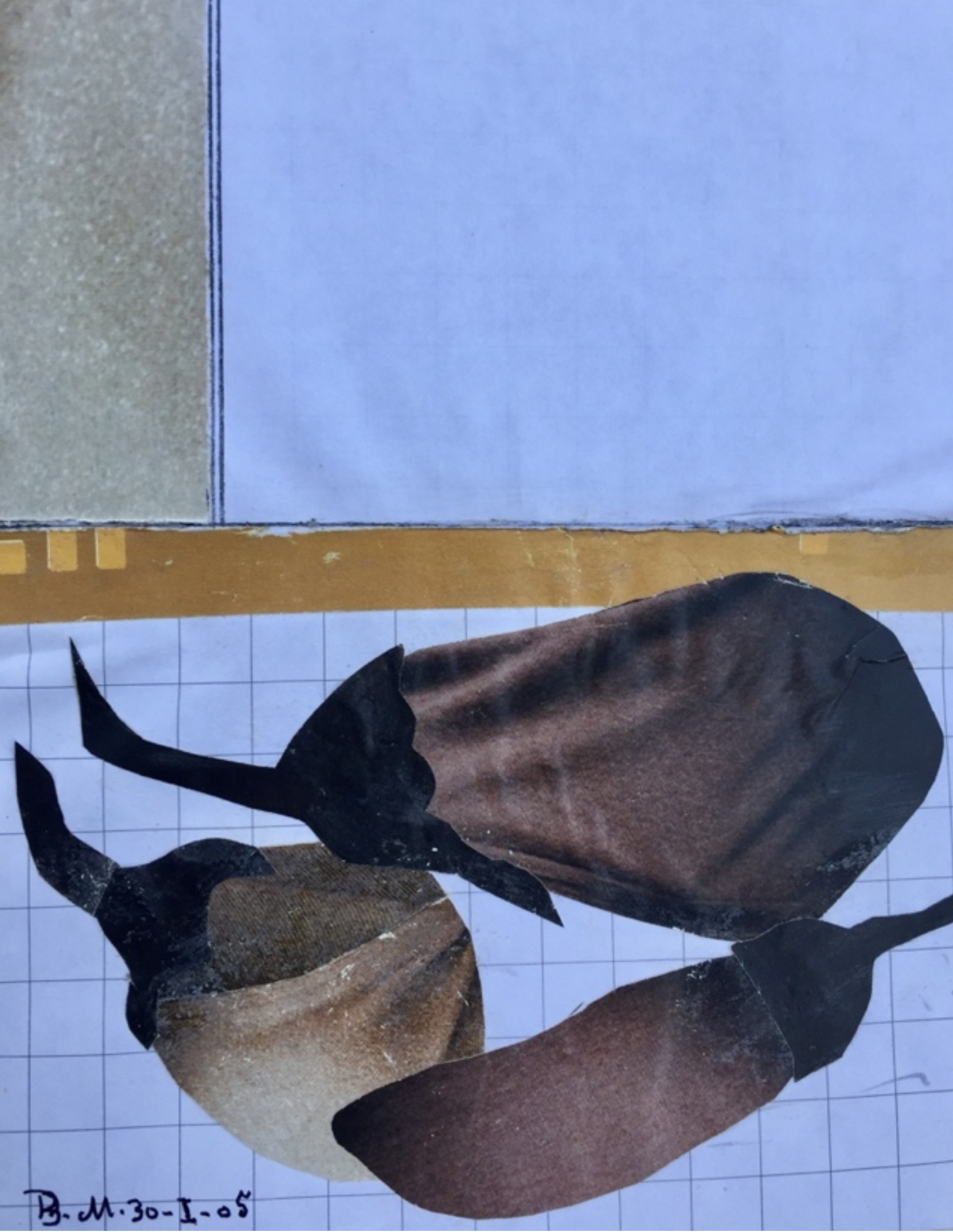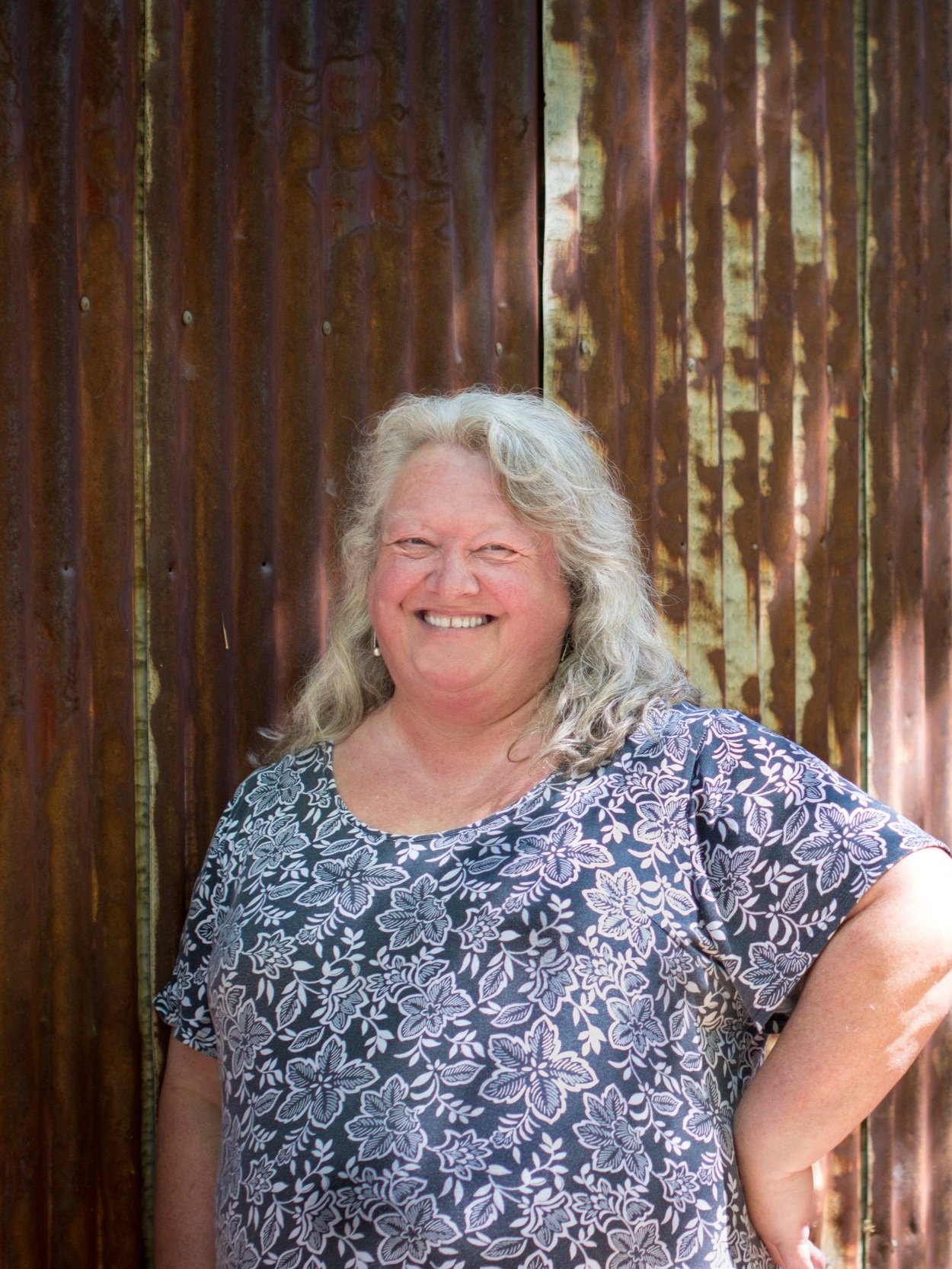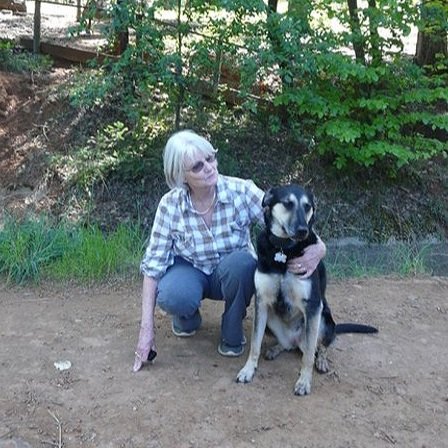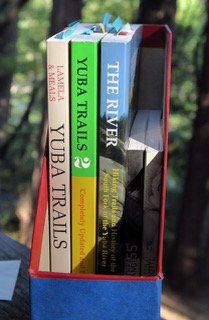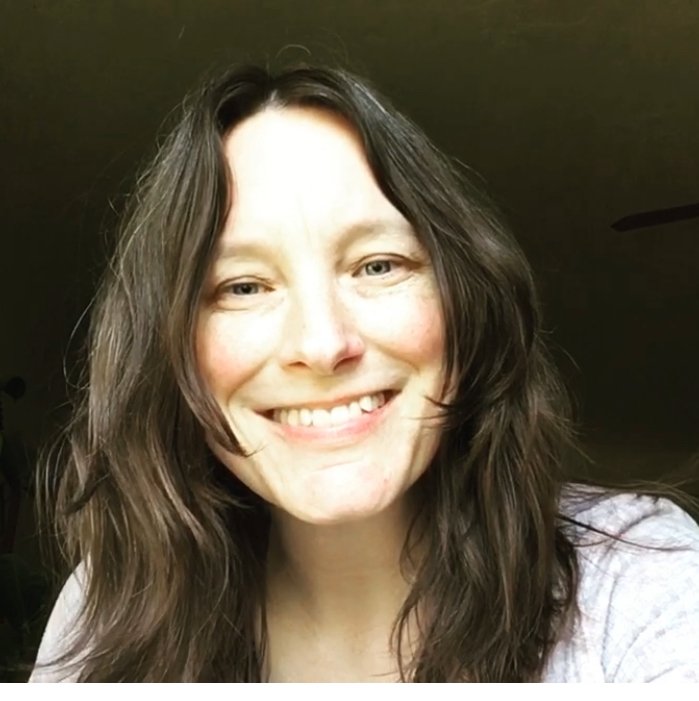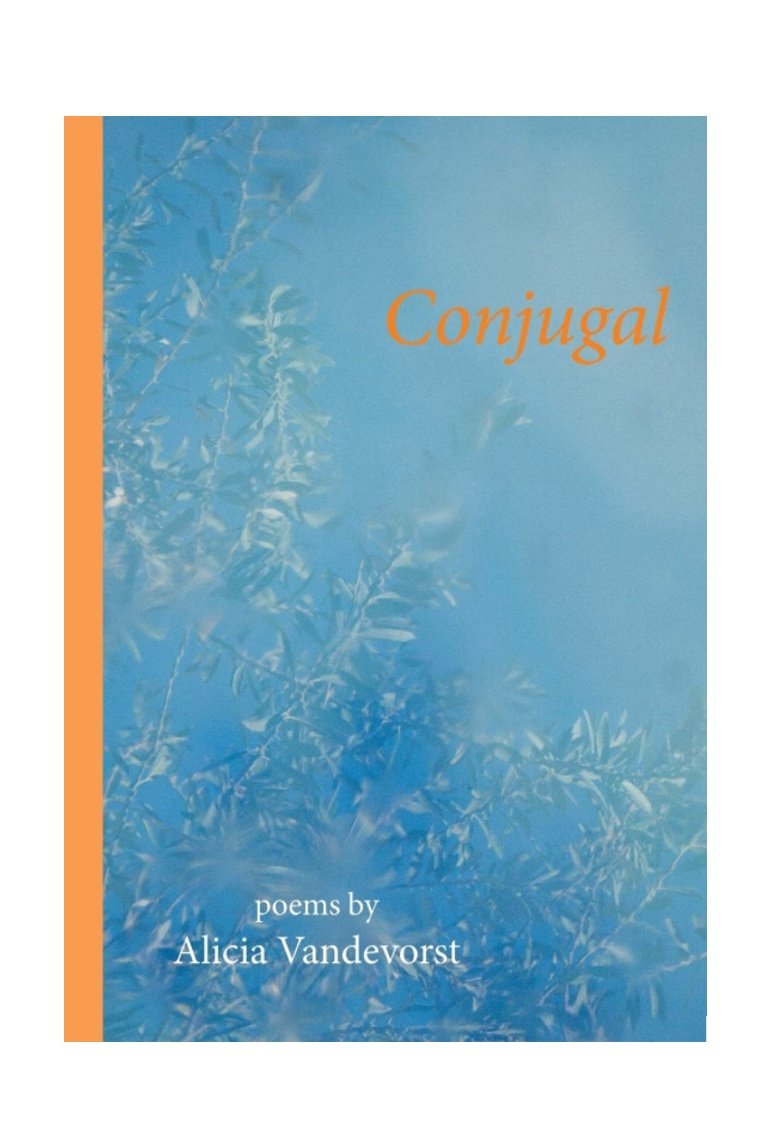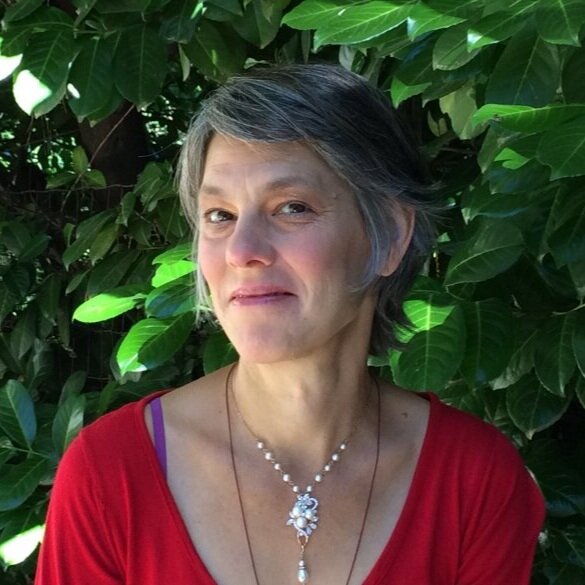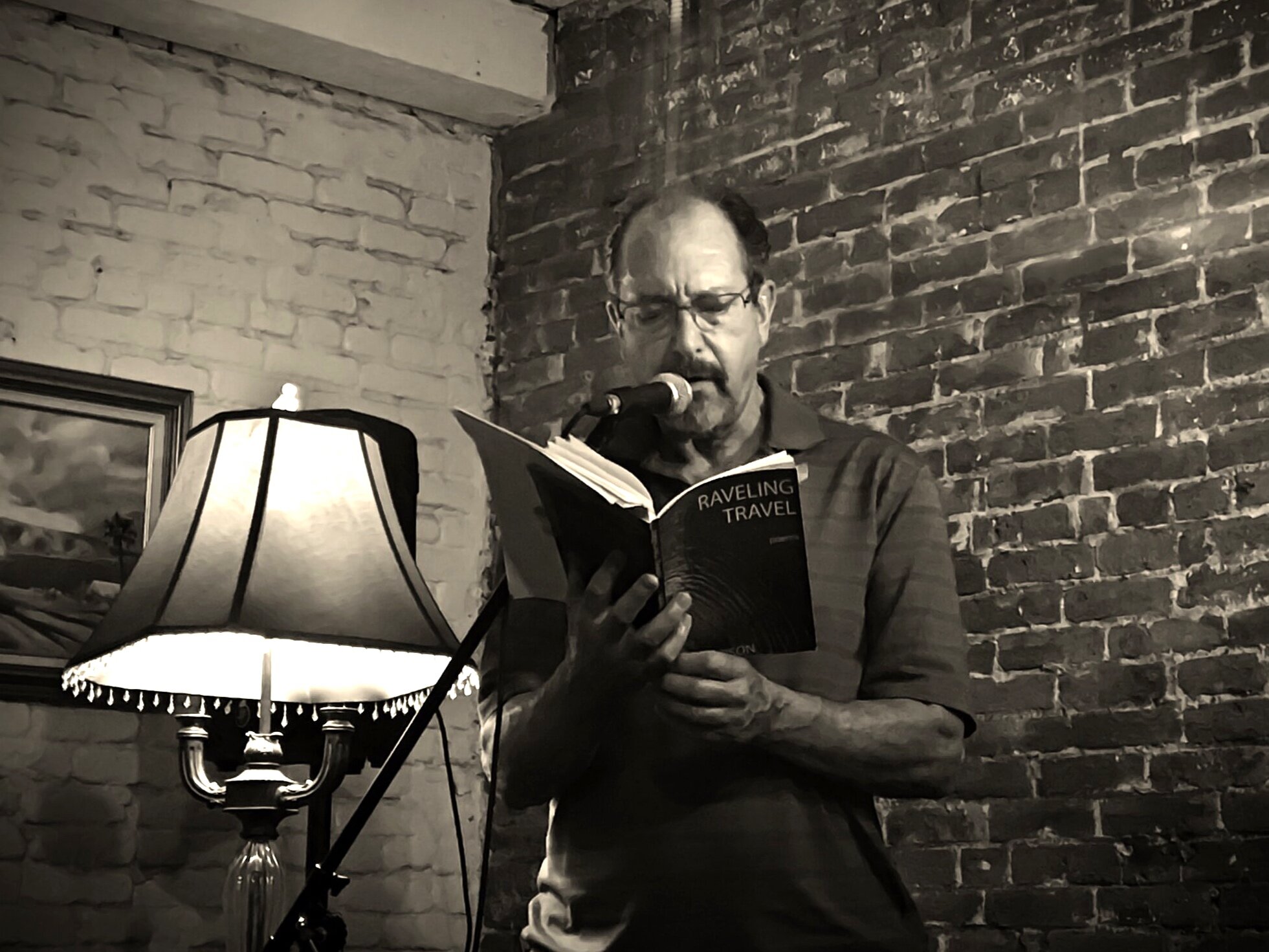Nevada County Authors
Our mission is to support local literary arts organizations, to engage readers, support writers, and inspire the next generation of literature lovers; to foster a culturally prominent literary community and to create an inclusive and open poetry establishment in order to curb what can often feel remote and inaccessible; to encourage diverse and unique artistic collaborations to help shed new light on poetry and literature; to reach out to our youth, thereby encouraging, educating, and inspiring fledgling writers of all ages to become a part of a new diverse and dynamic literary community.
TOM DURKIN
Tom Durkin is an award-winning freelance writer and photographer.
A lifelong social activist, Durkin believes in social justice – and respect – for everyone. A graduate of UCLA with a B.A. in psychology and a dual-major M.F.A. in TV production and screenwriting, Tom’s peripatetic career has ranged from screenwriting to government reporting, from investigative journalism to political campaigns, from public service documentaries to arts & entertainment interviews, from legal/legislative analysis to technical writing and editing. For the last 13 years, he has used his lived experience of bipolar disorder and homelessness to work with and advocate for the people on the fringes of society.
Born in New York, raised in Kansas, escaped to California. He worked ten years in TV/film as a member of the Writers Guild of America, west.
“I sent the last producer I worked for in Hollywood a cactus with a suggestion that he sit on it and moved to Northern California to go into construction. Got a column in The Union so I could advocate for homeless people and people living in desperation (illegal) housing. That led to serious engagement with Nevada County government and the nonprofit organization Sierra Roots to win a grant from the Upstate California Creative Corps.”
As the creative director of the Sierra Roots/No Place to Go Project, he is actively and successfully working with Nevada County government on social justice for homeless and illegally housed people. “So, at the tender age of 76, this grant from the Upstate California Creative Corps is giving me the chance to do what could be the most important work of my life.” -Tom Durkin
“Tom is kick-ass writer! I needed to tell the story of my father’s death. My notes were chaotic. He carefully wrote the story using my voice. I love the work he did.”
“Tom is a wonderful editor and loves to seek out the human interest element even in the most technical stories. He gives terrific feedback and excels at follow-up and project management.”
Tom Durkin
“As a columnist, Tom thinks and writes like a flamethrower”
ROOJA MOHASSESSY
Rooja Mohassessy is an Iranian-born poet and educator. She is a MacDowell Fellow and an MFA graduate of Pacific University, Oregon. Her ekphrastic debut collection, When Your Sky Runs Into Mine (Feb 2023) was the winner of the 22nd Annual Elixir Poetry Award. Rooja has been featured on NPR, The Hive Poetry Collective (to be aired in the fall of 2023), and other poetry podcasts and radio stations. Her poems and reviews have appeared in Narrative Magazine, Poet Lore, RHINO Poetry, Southern Humanities Review, CALYX Journal, Ninth Letter, Cream City Review, The Adroit Journal, New Letters, The Florida Review, Poetry Northwest, The Pinch, The Rumpus, The Journal, and elsewhere. Her work is also anthologized in California Fire & Water, A Climate Crisis Anthology, and Colossus: Body, a compilation of writing by Californians writing on the themes of bodily autonomy and reproductive rights.
Author’s website.
Purchase at: The Bookseller; Harmony Books (530) 265-9564; Amazon; The Bookshop.
EGGPLANTS
In a sun-soaked spot in the garden,
half-veiled by broad purple-veined leaves,
Black Beauties dangle,
burying bare heads
in the warmth
of a late summer bed.
*
Did the eggplants
back home,
potbellied and turgid,
dangle different?
Different from the Sicilians
or the heirloom Fairy Tales?
Remember how we stood
them in rows on the kitchen counter
like mothers in queues
of Tehran-Bazaar, wrapped
from head to toe in black chadors
*
Yet for all their protection in yards
and yards of tough patent leather sheen,
the eggplants back home collapsed into a pile
of slush in less than an hour in the oven.
It must have to do with the loamy soil.
*
In my palm, the petite Fairy Tale is far
from a shade of night.
It’s covered in neat streaks of white light,
like well-managed shooting stars.
I suspect it has issues.
Refuses to yield much seed,
lest it bloat and bitter.
Eschews color too.
Watch me and learn, it says,
Sweetness is promised in your name,
not in the well-conditioned soil.
Live up to your name!
All of you, go on, grow!
Be fruitful!
*
Little Fingers is more reserved.
Less need be said
when you are the origin of things.
It’s pendulous, suspended from the calyx—
a drop of ink holding dark
to history.
Run your fingers
down the bruised body to the head.
Its firm flesh ends in awe.
Not as in cucumbers,
bolting like children into lanky limbs,
but the father, tender in his prime.
*
Between Ichiban and Tycoon,
between Rosa Bianca and Violetta di Firenze,
between Louisiana Long Green and Thai Green,
Black Beauty bows
under the California sun,
sending her roots into the red
sere clay of the Sierra foothills.
*
When Your Sky Runs Into Mine is a stunning debut collection. Set against childhood in the post-revolutionary Iran of the 1980s and coming of age as an immigrant in exile, the poems are an intricate ekphrastic dance where the poet embodies the roles of women, and decides, “It’s time to come to terms / with the dark”––the dark of the chador, of blackouts during bombing, of immigrant guilt for family left behind. —Ellen Bass, author of Indigo
Photo by John DeMarco
When Your Sky Runs Into Mine belies any notion of a first book. It is a work of expansive vision and formal achievement, sounding an assured and unforgettable voice in poetry. Ekphrasis is at the core of Mohassessy’s poetics, resplendent in her responses to works of the Iranian painter and sculptor, Bahman Mohassess and in the richly textured images she creates with intricate diction and syntax. Throughout, Mohassessy is unflinching in her reckoning with the long-reaching arm of violence and with ongoing, dehumanizing views of immigrants and women. The figurative country of Mohassessy’s book is a woman’s body and soul—and in these piercingly timely and timeless poems, Mohassessy reveals the claims a woman must make to both to fully inhabit herself. —Shara McCallum, author of No Ruined Stone
Mohassessy’s intellectual power and penchant for image stand out in beautiful ways in this debut collection. She displays a painterly use of color, texture, and image that reflects her striking awareness of the physical world. Her capacity for efficient and elegant syntax and her fierce intelligence when dealing with political subjects and subjects of the female body in this world, constitute a most welcome addition to American poetry. This is a very impressive debut collection by a most promising poet. —Kwame Dawes, co-author of UnHistory
Bahman Mohassess. Untitled. Assemblage.
Author Statement
My connection to the Sierra Foothills goes back to the early nineties when I first visited and fell in love with its brilliant night sky. On full moons, I would play the daredevil, turn off my headlights and drive down dirt roads as if to prove how bright the moon in the foothills could be. After a fourteen-year nomadic gallivant in Asia, I returned to the area nine years ago and purchased a lot. The first thing I did after owning land was to plant fruit trees. Today I make Albaloo polo and khoreshteh beh for friends and neighbors with my harvest. Last year, I spearheaded the project to attain a Firewise designation in my rural community where respect for natural resources and wildfire mitigation go hand in hand. I never imagined I would find an art-loving community at my doorstep. The community of Grass Valley/Nevada City has supported my writing from the very start. I am proud and honored to assist with the Sierra Poetry Festival each year and to watch the growing success and outreach of the Nevada County Arts Council.
MOLLY FISK
Molly Fisk is the Inaugural Poet Laureate Emerita of Nevada County (2017-2019), where she edited California Fire & Water, A Climate Crisis Anthology, with a Poets Laureate Fellowship from the Academy of American Poets. She's the author of the poetry collections The More Difficult Beauty, Listening to Winter, Terrain (co-author), and Salt Water Poems (letterpress), as well as five collections of radio commentary, most recently Everything But the Kitchen Skunk.
Fisk has won grants from the National Endowment for the Arts, the California Arts Council, the Marin Arts Council, and the Corporation for Public Broadcasting. She's also won the Robinson Jeffers Tor House Prize, the Dogwood Prize, the Billee Murray Denny Prize, and the National Writers Union Prize judged by Adrienne Rich. She's written non-fiction for Harper's Bazaar, Poets & Writers, The Cleveland Plain Dealer, the Denver Post, Sierra, The Point Reyes Light, and Women's Voices for Change.
Fisk has lived in Nevada City for a quarter century, running reading series and teaching private writing workshops on-line and in person. Today she provides weekly commentary to community radio and works as a radical life coach.
“With unflinching honesty, kind humor, and vivid detail, Molly Fisk convinces us ‘There’s a loveliness to every ruined thing.’ The More Difficult Beauty is a brave and generous book.”
“ [an] intellectually self-aware, bold and brilliant re/consideration of the culturally paradigmatic problem of incest. In lacunae and ellipses as artful as the poems themselves, she shows to the mind the heart’s wounds and forces it to make of them an answer. Complex, memorable, Listening to Winter makes vivid the real and dangerous work of what is called, contemptuously, ‘confessionalism,’ meditating, from its most intimate perspective, on the nature and costs of ‘The Old Order.’”
“It is good to wake and realize that Molly is paying attention, has paid so much attention, and we are not lost. What a fine poet!! She is the real thing!”
PARTICULATE MATTER
If all you counted were tires on the cars left in driveways and stranded beside the roads.
Melted dashboards and tail lights, oil pans, window glass, seat belt clasps.
The propane tanks in everyone's yards, though we didn't hear them explode.
R-13 insulation. Paint, inside and out. The liquor store's plastic letters in puddled
colors below their charred sign. Each man-made sole of every shoe in all those closets.
The laundromat's washers' round metal doors.
But then Arco, Safeway, Walgreens, the library—everything they contained.
How many miles of electrical wire and PVC pipe swirling into the once-blue sky:
how many linoleum acres? Not to mention the valley oaks, the ponderosas, all the wild
hearts and all the tame, their bark and leaves and hooves and hair and bones, their final
cries, and our neighbors: so many particular, precious, irreplaceable lives that despite
ourselves we're inhaling.
—from California Fire & Water, A Climate Crisis Anthology
Story Street Press, 2022
Photo: Aeron Miller Photography
JEFF KANE
Jeff Kane practiced medicine at the National Institutes of Health and as chief of one of Alameda County hospitals' emergency departments. Fascinated that mainstream medicine virtually ignored patients' emotional experiences, he turned instead to simply listening to sick people and their families. He learned that when sick people listen mindfully to their own stories about their illness, they learn how to cope more gracefully. This practice evolved into cancer support programs at Sutter Cancer Center in Sacramento and Sierra Nevada Cancer Center in Grass Valley.
Jeff has published numerous periodical essays and three books on healing relationships: Be Sick Well (New Harbinger, 1991), The Healing Companion (Harper SanFrancisco, 2001), and Healing Healthcare (Helios, 2015). He's proud of a lifetime achievement award presented in 2000 by the Health Communication Research Institute.
His writing consists largely of essays on medical philosophy in blogs, podcasts, and a regular column in the Grass Valley Union. For fun, he writes some of it into music. He's a member of the band The Elderly Brothers, who perform occasionally in Nevada County.
“I love our general community especially for its support of artists. And vice-versa: creatives here encourage those who aren’t artists yet. In this town, expression and communication are normal, even expected. A forty-year resident, I’ve come to understand Nevada County as Athens West.”
There aren't enough songs about neurotransmitters or the over-prescription of drugs that manipulate them. If you want to play it, it's a simple 12-bar blues.
CHEMICAL IMBALANCE BLUES
I was laid off from my job, my landlord took my key,
And now I've learned my girlfriend has a contract out on me
My neighbor stole my hubcaps, my parakeet has A.D.D.
For as long as I remember, my mantra's been, “Woe is me”
I was anxious and depressed, insomnic and distressed,
Disoriented, angry, and completely hyperstressed,
So I went to see my doctor, who offered me the following news:
“You've got those BOO HOO HOO chemical imbalance blues
He said, “Your MAO's inhibited, your epinephrine's weak,
Your dopamine's inadequate, your serotonin's up the creek,
Your skull's become a bucket of dysfunctional synaptic ooze
You've got those BOO HOO HOO chemical imbalance blues
“Your boss outsourced your job 'cause your melatonin's rank,
Your girlfriend's homicidal 'cause your glycine's walked the plank
Don't waste your time examining your life for existential clues
'Cause you've got those BOO HOO HOO chemical imbalance blues”
So the doc prescribed me HappyzacTM. I take it twice a day
It makes me itch and twitch and be incontinent, but hey,
I think I'm not depressed now, even though my life remains an ugly bruise
I'll lick those BOO HOO HOO chemical imbalance blues.
Copyright © 2020 by Jeff Kane
“Dr. Kane offers us a heartfelt statement of the essential nature of healing and reminds us of the healing potential in all our relationships. It will encourage all those who want to use their lives to make a difference.
”
JUDIE RAE
JUDIE RAE is the author of the novel, The Haunting of Walter Rabinowitz; her poems have appeared in many literary journals and anthologies, among them Nimrod, Wisconsin Review, Mudfish.. She is the author of two chapbooks, The Weight of Roses, and Howling Down the Moon. Her essays have appeared in “Tahoe Quarterly”, “The Sacramento Bee”, as well as online at San Francisco’s NPR station, KQED. Judie taught college English classes for twenty-seven years at various colleges throughout California. A Canadian, she now lives in Nevada City, CA.
“Set in the creative writing world of 80s LA amid divorce, back to the land garden plots, therapy, and the bonds of women’s friendships, Judie Rae’s tart and funny twist on the familiar interaction between charming male professors and adoring female students will make you laugh, groan, and perhaps reconsider your own potential for exacting revenge. (Extra credit for picking up the literary references.) Rae’s protagonist, Effie, braids the strands of inner and outer dialogue with writing into a rope connecting her to new strength and understanding. This is one woman’s determined venture toward being more fully herself.”
The Charm of Nevada County
“It was over thirty years ago when I first discovered Nevada County. I flew into Reno Airport and drove down Highway 20 to partake in the wedding of a friend’s daughter. All the way down 20, I felt as though I were coming home.
I knew the reason. My grandmother had a cottage on the Ottawa River in Canada, where I spent my childhood summers. The environs around the river were lush with trees, and while 3000 miles away, it felt similar, enough so that I decided I could leave the Los Angeles area and move here. I assumed, rightly, as that a college English instructor, I could find work nearby.
A nature lover from the time I was a child, I knew that I had made the right decision. And aside from the wonders of the outdoor world, Nevada County provides other delights: The people are warm and welcoming and the two cities, Grass Valley and Nevada City, just small enough to provide intimacy. I was also engaged by the lively arts community here.
It was a move I’ve never regretted. Thank you, Nevada County, for being here!”
- Judie Rae
Judie Rae
Excerpt from The Haunting of Walter Rabinowitz by Judie Rae:
“You find writing immensely comforting because it is the one place where things are focused. The knowledge that you are responsible for beginnings as well as endings brings satisfaction because in life, as opposed to art, there is no way to determine if one is headed toward a climactic moment or whether, in fact, one has just experienced the denouement. It is always in retrospect that matters achieve clarity. In fiction, things have shape. In art, emotions coincide with the event. In life, circumstance and feeling do not always correspond.
You were going to write about the romantic myth that leaves women believing if they find their soul mate, that they will never feel separate again. You were going to write that the myth is a lie. Only, so what? One can do nothing about what exists in the realm of myth except perhaps expose the truth, and that so few women want to believe the truth leaves you---or Effie---creating stories for a very limited audience.”
HANK MEALS
Hank Meals graduated from San Francisco State with a major in anthropology then worked as a photojournalist before moving to Nevada County in 1973. In 1975 he was hired as an archaeologist for the Tahoe National Forest where he worked for 13 years. That was the beginning of his immersion in the Yuba-Bear River watersheds. His subsequent writings, photographs, interpretive hikes and enthusiasm for the region are renowned.
“Hank Meals has been the steadiest, longest, hands and feet-on student and admirer of the northern Sierra / Yuba river watershed’s ridges and canyons and forests in many centuries. A living scholar-worker-poet of overview and underbrush, he’s creating a new way of getting to know nature from inside.”
Passionately provincial, he claims that there are still layers of learning to experience in his chosen habitat. Hank is community oriented and was awarded the Bear-Yuba Land Trust John Skinner Outdoors Recreation Award in Education 2013 and the Nevada City Chamber of Commerce Lifetime Achievement Award for Extraordinary Dedication and Service in 2021. He has written three trail books, Yuba Trails with Susan Lamela (1993), Yuba Trails 2 (2001) and The River (2008) and they are all out of print.
Hank creates at the nexus of natural history, human history, geography and art. Recently he offered a series of power point presentations on local history at several locations that were well received. He is currently working on a trail guide for lively seniors Read Hank’s blog at (yubatreadhead.blogspot.org).
Hank Meals
“Contrary to the common stereotype, most of us were not “dropouts.” By the mid-1970s we were rooted in the community and active in local and regional politics. We voted and put people on school boards, on the County Planning Commission, on the California Arts Council, in water-managing agencies, on fire departments, in cultural centers, and even on the Nevada County Board of Supervisors. We established prestigious nonprofit agencies. We were very active in the arts with nonstop music, theater productions, publications, dance recitals, rowdy poetry readings, performance art, and exhibitions of all sorts. We contributed vitality to the local culture without sacrificing worthwhile traditions. In doing so we have been respectful, sometimes outrageous, but always civil.”
—From a contextual history of the San Juan Ridge for the California College of the Arts in San Francisco
SANDS HALL
SANDS HALL is the author of the memoir, Reclaiming My Decade Lost in Scientology (Counterpoint), a finalist for the Northern California Book Award and a Publishers Weekly Best Book in Religion and Spirituality. She is also the author of the novel, Catching Heaven (Ballantine), a Willa Award Finalist (Women Writing the West), and a Random House Reader’s Circle selection; and a book on writing, Tools of the Writer’s Craft. Her stories and essays have appeared in such journals as Alta Journal, New England Review, Iowa Review, and Los Angeles Review of Books. She brings her extensive theatre experience—as playwright, actor, and director—as well as her work as a singer/songwriter and performer, to her teaching. Professor Emeritus at Franklin & Marshall College, she teaches annually for the Community of Writers and for the Iowa Summer Writing Festival, among other conferences. She lives in the foothills of the Sierra Nevada in California. www.sandshall.com
Hall’s excellent essay about the controversy surrounding Wallace Stegner’s pulitzer-winning Angle of Repose is currently running in the Spring issue of Alta Journal.
EXCERPT:
‘The Ways of Fiction Are Devious Indeed’
Finding current relevancy—and outrage—in the accusations of plagiarism that have long haunted a classic of the West: Wallace Stegner’s Angle of Repose.
Courtesy of Alta Journal, April 4, 2022
We knew what we were there to talk about. It was an autumn evening, 1998, when we settled in around my large kitchen table. The artistic director of Nevada City’s Foothill Theatre Company, Philip Sneed, had invited core members of our company—director, costume and lighting designers, key actors, and me, as playwright—to spin ideas about creating a stage adaptation of one of the great American novels.
Our production of Wallace Stegner’s Angle of Repose seemed meant to be. The theater and production offices were not five miles from Grass Valley, where the novel’s narrator, Lyman Ward, lives and writes in a cottage built for his grandparents decades before—and where those remarkable grandparents, Oliver, superintendent of the Zodiac Mine, and his wife, Susan, a writer and illustrator, live out the final years of one of the most extraordinary fictional marriages of the 19th-century West.
“Have you visited the North Star House?” Phil asked. “It’s exactly as Stegner describes it.”
“We should take a field trip,” said Tom Taylor, often our production manager. “Including the North Star Mining Museum.”
“Wait,” someone said. “You mean what Stegner in his novel calls Zodiac Cottage and Zodiac Mine are actually the North Star?” read on….
Mary Hallock Foote by ThomasS Ehretsmann
ALICIA VANDEVORST
Alicia Vandevorst has written poetry for thirty years and studied with Patricia Donegan, Maxine Kumin, Barbara Jordan, and with Arthur Sze at the Napa Valley Writer’s Conference in 2012. Her poems have appeared in The American Poetry Journal, Canary: A Literary Journal of the Environmental Crisis, Writing in a Woman’s Voice, and Sisyphus. She also writes more experimental performance pieces. While attending Scripps College, she wrote and produced a poem for four voices, "In’erstates", and provided dance-chants for "Nucleus Expansion", a collaboration between the Dance and Ceramics departments involving five hundred clay eggs! More recently, she completed a play titled Psyche that combines poetry, mask-work, and meditation and served as a playwright for the 24 Hour Plays in Nevada City. Her first book of poetry, Conjugal, was published in 2019 by Poetic Matrix Press. Last spring, she read at the Sierra Poetry Festival with her handmade puppet Bha-rit.
ISBN: 978-1733702522 Poetic Matrix Press, 2019
Available at The Bookseller in Grass Valley. and at WOB.
“The technical expertise in this poetry is often striking, beautiful — but not the main gift. It is a book on how to live in a world of war and fear and money without defensiveness. The silence the words come from frees you from your masks. You descend into an unfolding center, each expression leading inward. Boldly tender and clear-sighted, Conjugal’s voice dissolves categories — political, lyrical, magical, technical. It is the voice of an interconnected being that passionately laments world desecration while continuing to offer itself unconditionally. It frees us from cynicism.”
Here, the first and final parts of her poem "Archipelago"
1.
I make dolls of pale green glass with their fine lips parted
and place behind those lips songs that you prompt by
breathing into their mouths. The glass bodies are built
like puzzle pieces that can be latched together to form
a sheltering wall where the light of day varies— bowls of
darker green, ribbings of brightness. These dolls are a solitary
joy, more permanent than vinyl, hard and transparent
and fragile. I shape these noses so that the nostrils open,
so that the eyes look widely with relaxed lids, so that
light and dark, that cycle, may animate their faces—
a thing I may accidentally shatter or bury beneath trees
or give to arms like a baby. But each is a fixed file of beauty,
a box for human song, as if the human heart were left as a trace,
possible to retrieve responsively.
. . . . . .
7.
Green broom sits where the fire will be soon. Sparks like
a hundred goldfish dart; crinkled flakes, they swirl into the damp
cedar’s gills. We all escape into a larger being as pendular
as breathing. Even the stars are this sort of fish. The green broom
whistles and coils, glowing orange. Black rakes of broom shrivel
in the clear place in the fire. The fire sings.
~ Alicia Vandevorst
Poet Alicia Vandevorst
JORDAN FISHER SMITH
Jordan Fisher Smith grew up on Mt. Tamalpais, where his father remodeled a Depression-era shack he bought for $5,000 from the fire lookout on the mountain into a small but cozy home. At fifteen Smith came to the conclusion he had been born into an environmental catastrophe and has spent his life trying to figure out how to respond. He spent two decades as a park ranger in California, Idaho, Wyoming, and Alaska and began moonlighting as a magazine writer. A job at Auburn State Recreation Area—the subject of his book Nature Noir—led him to move to Nevada County. Since he really doesn’t know anymore than anyone else what to do about the mess we’re in, he abandoned polemical writing for nonfiction storytelling. His characters are rank-and-file rangers, firefighters, and biologists struggling to mediate between civilization and nature. His second book, Engineering Eden, won a California Book Award and was longlisted for the PEN- E.O. Wilson Award for Literary Science Writing. He’s working on a third. He has written for Orion, The New Yorker, Men’s Journal, Discover, and other outlets and narrated and appeared in four documentary films, one of which, “Under Our Skin,” which made the 2010 Oscar Shortlist.
To purchase: The Book Seller in Grass Valley, Harmony Books in Nevada City, and Word After Word books in Truckee.
“Seduces the reader with a public lands parable masquerading as a wildly entertaining thriller.”
“An intensely reported, rousingly readable and ambitiously envisioned book.”
“Eloquently meditative . . . [Smith writes] with a gritty candor – think of a gun-toting Norman Maclean or Wallace Stegner.”
“[Smith] writes about the natural world with more grace than anyone since Edward Abbey.”
Jordan Fisher Smith
EXCERPT: from Engineering Eden copyright 2016, 2019, by Jordan Fisher Smith
THE HUMAN SCALP is an upholstery, stretched thin over its bony substrate, and it was not unknown for it to be peeled off in a big flap during a grizzly attacks. So the report that had come in about a scalp was a plausible one, and one of Jim Brady’s rangers and a seasonal firefighter were dispatched to investigate. Arriving at 5:36 p.m. near a bridge where the Grand Loop Road crossed the Firehole, the rangers radioed that indeed there was a blanket on which lay a scalp with pieces of flesh, crawling with maggots. They collected the blanket and remains and brought them back to the ranger station.
Stephen Zetterberg called the judge’s attention to an entry made in the logbook by a ranger named Stu Orgill at the time the evidence reached the ranger station.
“Your Honor, may I point out that at 1736, a person that might or might not have been Stu Orgill wrote in the log: ‘Re: 1651, It is a scalp with pieces of flesh, maggots. Pictures taken and pieces collected under the rear of the building.’ ”
Storing flesh, or any remnant of a body that was not completely dry, in a plastic bag at ambient summer temperatures outdoors under the back of a ranger station was not something a properly trained policeman or evidence technician would have done. Without freezing or refrigeration, the moist environment of a plastic bag speeds putrefaction and decomposition. But the rangers probably considered the material too objectionable to bring inside.
Today, collection and preservation of evidence is taught at the National Park Service’s basic law enforcement academy. However, for rangers in 1970, there was no academy. They learned on the job, as Brady had at Lake Mead, and even as many policemen and sheriff’s deputies did outside the national parks, at that time.
On August 24, 1970, the day after the scalp was found, eight or nine rangers and firefighters, supervised by Jim Brady’s boss, the West District ranger, went back to the scene and made an intensive search of the area. Another clump of hair of either human or animal origin was located and brought to the ranger station.
Jim Brady remembered looking at the blanket and other material and directing a ranger to drive them to the Law Enforcement Office at park headquarters in Mammoth Hot Springs. After the evidence arrived there on August 31, eight days after the initial find, it was mailed from the Law Enforcement Office to an FBI crime lab. But when it got there, an inventory by the laboratory technician of the items in the package did not include a scalp.
“And the records of the FBI show that what was sent was the blanket,” said Zetterberg, connecting the dots for the judge. “And the report from the blanket refers to hair taken from the blanket. There is no reference to the scalp. Now, where is the scalp?”
“Is that a question for me?” asked Brady from the witness stand.
“That’s right,” said Zetterberg, pointedly.
“Well, Mr. Zetterberg, I would think—”
“I don’t want your philosophy, Mr. Brady!” said Zetterberg sharply. “I want to know if you know where that scalp is!”
“Let’s let him answer,” said Judge Hauk. “He is trying to answer.”
“I believe it is in Mammoth,” said Brady.
“On what basis do you base that belief?” Zetterberg pressed him.
Brady explained that the Law Enforcement Office was the central repository for all evidence. Anything sent to the FBI would have been sent from there, and if it was returned by the FBI after analysis, it would be retained there.
“Wait, just a moment,” said Zetterberg. “You said it was sent to the FBI, but the report there does not say it was sent to the FBI. The report says, ‘Blanket Q-l sent to FBI,’ and there is no reference there to any maggots and there is no reference to a scalp. And you have got a week in between. And what can maggots do to a scalp in a week?”
“I see,” said Brady. “Well, to the best of my knowledge, Mr. Zetterberg, the blanket and the scalp, which were kind of stuck together, were sent.”
“To Mammoth?” asked Zetterberg.
“Correct,” answered Brady.
“From you? And that’s the last you knew of it?”
“Yes, sir, as far as I recall.”
—from Engineering Eden copyright 2016, 2019, by Jordan Fisher Smith
MAXIMA KAHN
Maxima Kahn writes poetry, essays and fiction. Her work has been featured in numerous literary journals, including The Louisville Review, Wisconsin Review, Euphony, Sweet, Poem and many others, and on popular blogs such as The Creative Penn, Tiny Buddha, Positively Positive and The Startup. She has twice been nominated for Best of the Net, was a finalist for the Atlanta Review poetry contest, and has received scholarships and fellowships to the Community of Writers at Squaw Valley, the Colrain Poetry Conference, and the Vermont Studio Center. Her first full-length collection of poems, Fierce Aria, was published by Finishing Line Press in 2020 and was a finalist for an Eric Hoffer Book Award. She is also an improvisational violinist, an award-winning composer and a dancer.
Maxima has taught creative writing at the University of California, Davis Extension. Since 2004, she has worked with hundreds of artists and dreamers of all kinds, helping them unleash their creative gifts and create lives of passion, purpose and deep play. She teaches and blogs about creativity and soulful living at BrilliantPlayground.com. You can follow her writing life at maximakahn.com
To Order Books: Finishing Line Press Also available wherever books are sold.
“I have learned to walk in the valley of my fears and losses,” writes Maxima Kahn, and the evidence of what she has learned is all over these amazing poems. Fierce Aria is a book with a post-Wallace Stevens mission: to coax the still perfection of ideas out of the abstract realm, so they can take shape in the messy wilderness of reality. Distinctive, honed, vulnerable, musical, courageous, honest, Maxima Kahn’s poems are fully ripened, fully considered—each one ready to drop richly into the hand like a subtly contoured fruit. Taste them.”
“In her first full-length collection, Fierce Aria, Maxima Kahn traverses rarified air, an anarchist wrapped in the lyrical spirituality of Rumi. Each of these poems is both a prayer and a call to arms, seamlessly crossing the barriers of concrete reality and dizzying imagination. Maxima clearly obsesses over every word and phrase; artistry that anchors us into each imagistic line, while allowing the reader to vicariously live her life of intense introspect and wondrous landscapes.”
Where Everything Is Music
“We have fallen into the place where everything is music.” —Rumi
How often the heart shatters,
as if shattering were its purpose.
Shards rain as a loved one
leaves, as a new
revelation tears me open,
as I mourn the self I failed.
Who knew wider had no
limit? Who knew rawness
is the heart’s condition?—all this
pouring light would bring
such fullness I nearly
choke on love.
I am swimming and drowning at once,
head barely above water,
then not above. Life
nearly wiping me out. Yet here
in these waves I believe
I can hear
fragments of luminous song.
Photo: Don Williams
Louis B. Jones
LOUIS B. JONES
Louis B. Jones came to live in Nevada County in the nineties and has written three of his published novels here—California’s Over, Radiance, and Innocence—first in a shed he found downhill from his house on Banner Mountain; and then, having moved to the Cement Hill area, in an old turquoise RV trailer he towed into the woods and leveled. Born in 1953 in Chicago, educated at New Trier High School and the University of Illinois, he fell in love with California early in life and came out here as soon as he could, largely with an interest in writing about the place itself, California, not so much about the natural environment but about the people, especially the ordinary, middle-class folk of California who seem to represent to the whole world a kind of enviable ideal, or a kind of norm.
“Smart, funny, uplifting, tender and merciless, all at once—a remarkable achievement for one novel.”
His novels tend to have a metaphysical basis. There’s always a philosophical puzzle—the mind/body problem, the perception-vs-reality question, the mystery of the “ground of being”—but his work is fundamentally interested in human nature; so there’s a comic tendency.
His other dedication in life is to environmentalism. His place has a Depression-Era aspect of ingenuity and energy-independence.
To order books: www.powells.com
EXCERPT: The opening scene of a new novel, Sorting for Redemption, about middle-class homelessness and the future of the “millennial” generation:
“Early morning on lower Market, on the corner across from the bank walkup window, the nomad with the amazing dreadlocks – lopsided mass of vines and trunks and flopping stalks – parks the old bike with the cardboard box bungeed behind the seat and, cross-legged on the sidewalk, he makes himself comfortable against the outside wall of Starbucks. It’s where he can get Internet. Out comes the laptop, scarred and dented and dusty. As he does most mornings, in a peaceful hour before traffic, with his back to the brick wall, he will lift the computer lid and bring up copper prices. It’s his particular interest. The London Metal Exchange by now is past the midday session, and he likes to check prices.
Not that he’s planning on doing any trading, or influencing anything. He’s just keeping tabs because he’s been playing with an algorithm. It’s a program that will gobble up copper futures whenever prices dip, automatically, on into the future; then sell instantly whenever there’s a small bump. He’s been testing it on a toy platform offline keeping it strictly insulated from the real markets. Starbucks isn’t the cleanest, securest Internet. And he won’t stay online long. The only guaranteed safe Internet won’t be open till 10:00 – the public library, where all the computer bays have solid phone connections.
Of course it’s all contaminated, everything, all wireless – with search-tracking and advertising, corporate espionage, secret data collection. Especially a public Starbucks wireless is going to be teeming filthy. But he likes getting a quick look at London and New York trends – and he has a virus-protection trick. He can bring up the whole COMEX Trading Board, say, and, when it appears, instantly save the screen image. Then duck offline again, to examine it at his leisure. Also, this particular east-facing wall is a sweet place at this hour – the ancient bricks in the deepening sunshine even smell like fresh-baked bread – at least until the sun’s direct radiance will start bleaching out his laptop screen.
At which point, he’ll gather his things and flip his bike and head for Fourth Street, to hit the lidded bins behind Whole Foods, where it’s Monday and they’ll be putting out the stale croissants. Also, after a weekend, Whole Foods invariably throws out a number of sweet organic oranges, culled by the produce girl because the outermost skin might be kissed by the white powder of penicillium mold, harmless and perfectly natural.
”
KIRSTEN CASEY
Kirsten Casey is a California Poet in the Schools, and creative writing teacher. She earned her MA in creative writing from San Francisco State University in 1992, working with Frances Mayes, her thesis advisor. Her poetry collection, Ex Vivo: Out of the Living Body, published by Hip Pocket Press in 2012, is inspired by odd stories, remarkable words, and the mysteries of the human body. Her second book of poetry, (with the working title Instantaneous Obsolescence,) explores historical and literary characters struggling with social media. In 2019, she taught high school workshops as part of the Academy of American Poets Laureate fellowship granted to Molly Fisk, to facilitate the poetry anthology, California Fire & Water, which responds to California’s climate crisis. She was a co-editor of the book, which includes one of her poems. Currently, she is an associate editor of the book Small, Bright Things, a collection of 100-word stories by teens, with local author and editor, Kim Culbertson. She has lived in Nevada City for almost 28 years with her husband, and has three children in their twenties, who patiently assist her with technology.
Socrates Refuses to Use the Hashtag
Socrates is ready for a fight
but it is all in his head, that crowded
ancient marble dome, filled with togas and dust.
The citizens are staring at their palms
which blink off and on, blue lights at dusk.
They are distracted, but he rails on
about the truth, which is something
listed on Wikipedia and www.Merriam-Webster.com.
They cannot even remember their children’s
phone numbers, or simple street directions:
take a left at the Pantheon, go straight past
the Temple of Zeus, it’s the sixth portico
on your right. He notices they aren’t even writing,
just pushing their fingers against whatever glows
in their hands, then holding these flat boxes
in front of their faces, like shields against the sun,
or tiny torches. What is this nonsense?
They are abbreviating their meaningless lives,
some of them carelessly falling into the fountain, others
plugging their ears with white twine. The fools
of the future. After his lecture, they approach,
taking selfies with the philosopher, his bald head
shiny with countless flashes, his white
wiry eyebrows raised. “Where is this going?”
he asks. “Through the air to everywhere,”
is their answer. “Watch this,” they insist, typing
furiously, #Socrates#Truth#Greece.
And this tiny symbol, the octothorpe,
with a future of tic-tac-toe, and measuring meat, and phone
operator codes, is scratched into four lines
in his memory. He senses defeat, although he loves
seeing his own face on every screen.
Casey’s first collection, Ex Vivo: Out of the Living Body, was published by Hip Pocket Press in 2012 and is available at Harmony Books and online.
GARY SNYDER
In early April, 2021, Gary Snyder agreed to record two of his poems for us, "The North Coast" and "Where, " in anticipation of our 5th Annual Sierra Poetry Festival. It is difficult to know how to introduce Gary Snyder. Is it as a prolific author and recipient of numerous awards? Is it as a man of letters; a philosopher engaged in the values and practices of deep ecology, nature and Zen Buddhism? Is it as our neighbor here on the western slope of the Sierra Nevada mountains in California, a Pulitzer prize-winning poet and the first chair of our state agency for the arts, who is deeply at home in what many would consider to be wilderness? We think it is all of them.
Read Robert Hass’s introduction to The Practice of the Wild (Counterpoint Press, 1990). Courtesy of The Paris Review.
Forthcoming: In June 2021, Gary Snyder will be awarded China’s International Lifetime Achievement Award for his contributions to literary arts and translation, both east and west.
Courtesy of the Sierra Poetry Festival, April 2021
GARY SNYDER. Photo courtesy of KURT LORENZ
ABOVE PATE VALLEY
We finished clearing the last
Section of trail by noon,
High on the ridge-side
Two thousand feet above the creek
Reached the pass, went on
Beyond the white pine groves,
Granite shoulders, to a small
Green meadow watered by the snow,
Edged with Aspen—sun
Straight high and blazing
But the air was cool.
Ate a cold fried trout in the
Trembling shadows. I spied
A glitter, and found a flake
Black volcanic glass—obsidian—
By a flower. Hands and knees
Pushing the Bear grass, thousands
Of arrowhead leavings over a
Hundred yards. Not one good
Head, just razor flakes
On a hill snowed all but summer,
A land of fat summer deer,
They came to camp. On their
Own trails. I followed my own
Trail here. Picked up the cold-drill,
Pick, singlejack, and sack
Of dynamite.
Ten thousand years.
RICHARD B. JOHNSON
Richard Johnson is Tribal Council Chairman for the Nevada City Rancheria, and a member of the Board of Directors for the California Heritage: Indigenous Research Project (CHIRP). He is the author of The History of Us: Nisenan Tribe of the Nevada City Rancheria, published by Comstock Bonanza Press in 2018.
Johnson also provides consulting on curriculum planning in education. Examples of this planning include his work with Sacramento State University, through its California Indian History Curriculum Coalition; and his work with the Smithsonian, through its National Museum of the American Indian’s Education Department.
In his own words:
“Even though I was born on the reservation, I was forcibly removed by the federal government and sent to foster care with all the other children when I was two years old. Not being raised by my mother, I was fortunate that I could visit my Uncle Frank Johnson of Rough & Ready and live with my grandparents several times each summer on the reservation. Even so, my knowledge and connection with our culture and heritage was extremely limited. The reading of all the sources listed in the Bibliography and the documents in the History Log, plus interaction with my people and the Elders, has given me an understanding and insight of how life must have been as an Indian in the past – what our ancestors and the Elders had to endure; living constantly in fear, and watching over 99% of our people disappear from this earth for one reason or another.”
“Fortunately, my grandparents, Pete (Tahn-ooo) and Margert Johnson, did survive, along with other tribal members whose knowledge was passed down to us. Now I can better understand the thoughts and behavior of my Mother, Mabel (Johnson) Hobbs and my two aunts Jean (Johnson) Edwards and Harriet (Johnson, Klatt) Reed: why they never embraced their past or had any pride about themselves; what fear, pain and suffering my grandparents and all the others must have seen and felt throughout their lifetimes. Because of the way the non-Indian people treated the Indians and how they forced their will upon them, it amazes me that a few (18 in total) managed to survive. Finally knowing all this gives me great pride that I am one of their descendants. I also know that these feelings are not just my own but are shared by every member of the tribe today.”
The Tribal Council starts every meeting with this prayer by Johnson:
We who sit here before our ancestors,
Pray that we will conduct ourselves
In a manner that will make you proud
That we are your children.
The History of Us: Nisenan Tribe of the Nevada City Rancheria can be bought online, here:
And at the following local stores:
The Book Seller-107 – Mill St - Grass Valley
Harmony Books – 130 Main St – Nevada City
Kitkitdizze Store – Broad St – Nevada City
Note: All royalties from the sale of this book are donated to the Nisenan Tribe’s nonprofit arm, CHIRP. Special thanks to Nevada City local store, Kitkitdizze, for donating all proceeds from its own sales of The History of Us to the CHIRP.www.comstockbonanza.comwww.amazon.com
JUDY CROWE
Judy Crowe has taught English literature and composition, public speaking, children’s literature, and creative writing at Sierra College. She was a bookseller for a few years (at Grimblefinger and Harmony Books) and is pleased to live in a community with several independent new and used bookstores, a dynamic literary scene, and a vibrant library system. She is a writer, a poet, a freelance proofreader and copyeditor. She is a member of the Community of Writers and serves on Nevada County Arts Council's Literary Committee.
Judy’s stories and poems have appeared or are forthcoming in Epoch, The Maine Review, Catamaran, Commonweal, Subtropics, Miramar, Cultural Weekly, Canary, The Lake, West Marin Review, Spillway, The Midwest Quarterly, The Inflectionist Review, The Innisfree Poetry Journal, and elsewhere.
Judy was born in Nebraska, moved to California as a child, and has lived in Nevada City for many years with her husband, photographer and teacher Gene Crowe. She believes, in the words from the wonderful children's book What You Know First by Patricia MacLachlan, that "What you know first stays with you." The disparate regions of prairie, mountains, rivers, and ocean inform her life and her writing.
Her poetry chapbook, Flat Water: Nebraska Poems, was published by Finishing Line Press in 2019 and is available at Harmony Books and online.
Flat Water Nebraska Poems, Judy Brackett Crowe
2019, Finishing Line Press ISBN 978-1-63534-850-7
“In Flat Water, Judy Crowe gives us back the memories of a midwestern childhood that many know only from fiction and dreams: homely delight, black-and-white mornings, fireflies, hollyhocks, corn stubble, silence.
—Molly Fisk, poet—The More Difficult Beauty”
Judy Brackett Crowe
Home Skies
May I borrow a springtime prairie sky
stretching from here to everywhere
with colors of birdsong
with wind and traveling clouds
with Sandhill Cranes by the thousands
flying in
dancing
feeding in the winter fields
sleeping in the shallow Platte
pausing on their long journey to ice.
One sleet-falling December dawn
I’ll toss that wide sky above
the Ponderosa arrow tips
and let it warm
this winter place
will give it back in a day or two
need it only now and then
to remember where I started
where I sometimes want to be
for a little while.
And later when I’m far from home
beneath the same but always different
prairie sky the horizon impossibly far away
I’ll ask to borrow my own
Sierra blue hemmed in
by those pines those mountain tops
a smaller stretch of blue
to remind me of my borders
of my own safe nest
in this world.
(from Your Daily Poem)
GENE BERSON
Gene Berson is a former copywriter, trade show worker and retired teacher who grew up on the San Francisco Peninsula. Like many people who saw towns like Redwood City change from a place where people raised chickens, dogs ran without leashes, kids jumped on their bikes and didn’t come home until dinner time, he felt the last of small town America disappear behind him. The wilder places still engender a sense of the sacred within him: the marsh, oak trees it took daring to climb, cow fields full of meadow larks, vacant lots kids dug forts in and the dazzling air. He watched that world give way to the strip city the peninsula has become: the center of an international vortex of technology. Exiled above asphalt, he shares his generation’s sense of how fast things disappear. Faced with that reflection, he has sought to write poems honoring what has gone, seeing what stands in its stead, and imagining renewal. His poetry reflects that, while lamentation binds us together more now than we care to admit, it lifts us with its song to reunite us, make our spiritual kinship visible and clarify what we need to do.
“These are poems and prose from a San Francisco poet, with echoes and rhythms of Whitman, Kerouac, and Ginsberg.... Berson engages the reader on a journey. And what we find is the real solace we can take from beauty.”
His book, raveling travel, is available through Harmony Books and Amazon. Recent work has been published in current and past editions of Canary and Sisyphus. Other publications include American Poetry Review, Bastard Angel, Red Fez, the anthology, Honeydew from Taurean Horn press, Abalone Moon and others.
Raveling Travel, Gene Berson, Open Book Press, 2017
Gene Berson
“Berson uses his transcendent gifts to conjure closely observed details of man and nature, revealing mind-opening images and insights. He is our native guide to the beautiful, miraculous, broken land and selves....”
Geese
I thought for a second they were bowling pins
balanced on the bank of the drained reservoir
but they were so attentive
beaming in a radiant aura, a devout
congregation of little monks robed in light
soaking in the last rays of the sun
Their brown-hued breasts swelled
filling with the day’s last warmth—
about twelve of them.
We didn’t think we’d disturb them
since they seemed far enough away
on the opposite shore
but one started working the rusty hinge of his voice
and they all gently took to the air, flying as if one fabric
layering the valley with trombones
spiraling higher as they circled the reservoir
passing above us, lifting just enough
to thread an opening in the trees.
But what if we had been more patient
crouched on our haunches
in the shadows at the base of the trail
and attended the last light with them
felt the coolness come, the darkness, and when
they took off, unable to fully see them
listened to their wings
as they swept overhead and escaped
with that part of ourselves
no one can see?
-Gene Berson
LESLIE ANN RIVERS
Leslie Ann Rivers
Leslie Ann Rivers is the author of the historical novel “Fiery Star,” a NIEA Winner in the category of Regional Fiction: West. It was also named a national Finalist in the Historical Fiction category.
Leslie Rivers is a writer, actress, director and teacher, and she thinks herself lucky to have made her life in the theatre. When she was in her teens, she acted in a production of Bus Stop, staged in an old, 19th century hall. Beyond the rear of the building flowed the American River, smelling sweetly of sand and willow, and a stone’s throw from the spot where the California Gold Rush began--a cradle for what would one day be her novel, Fiery Star.
The novel takes the reader into the rich and rugged world of nineteenth century California, and the lives of the actors who brought their art to the raw towns of the Gold Rush. It’s based on true events. The story is told through the fictional journals of Emma Rose Lightfoot, a teenager employed as a laundress by the acting company.
In California, beauty comes at a price —
Her lovely rounded hills burn into the retina
Far beyond the “dry season;”
The brilliance of an Edwin Booth flares up
From his soul’s fine fire.
There is a ritual in repetition.
A parched autumn approaches,
And here we go again.
Leslie Ann Rivers, August 25, 2020
Website: www.leslieannrivers.com
FIERY STAR is available at The Book Seller in GV, at both SPD Markets (Zion and McKnight, in GV and NC, ) and from Amazon.com.
“ A colorful world of actors and outlaws comes to life in a debut historical novel from Rivers...scenes and plot-lines stand out for their tension and intrigue — a section describing a rescue attempt during a massive, town-consuming fire is knuckle whitening...shines thanks to its compelling...cast and vividly constructed world.”
Fiery Star by Leslie Ann Rivers
JOSH WEIL
Josh Weil is the author of the novel The Great Glass Sea, the novella collection The New Valley, and story collection The Age of Perpetual Light, winner of the California Book Award.
He has been awarded the Dayton Literary Peace Prize, the Sue Kaufman Prize from The American Academy of Arts and Letters, the California Book Award, the Library of Virginia’s Literary Award, the GrubStreet National Book Prize, the New Writers Award from the GLCA, and a “5 Under 35” Award from the National Book Foundation. Weil’s short fiction has garnered a Pushcart Prize and appeared in Granta, Esquire, Tin House and One Story, among others. He has written non-fiction for The New York Times, Time.com, Poets & Writers and The Sun. A recipient of fellowships from the Fulbright Foundation, the MacDowell Colony, the Merrill House, and Virginia Center for the Creative Arts, he has been the Picador Professor in Literature at the University of Leipzig, the Distinguished Visiting Writer at Bowling Green State University, the Grisham Writer-in-Residence at the University of Mississippi, the Tickner Writer-in-Residence at Gilman School, and the Distinguished Lecturer at The Sozopol Writing Seminars. He has taught at Columbia University, New York University, The New School, Brooklyn College, Sierra Nevada College, and Bennington College, as well as at numerous conferences, including the Community of Writers and Bread Loaf.
Website: http://www.joshweil.com/site/home.html
Josh Weil
“Brilliant...Weil seems most comfortable writing Deborah Eisenberg-length stories of 25 to 50-plus pages that can read more as novellas, in the best way possible. They are patient and provocative, nuanced and far-reaching. For their breadth, intensity and audacity of ambition, the stories of “The Age of Perpetual Light” situate themselves as natural heirs to such masterpieces as Denis Johnson’s “Train Dreams” and James Joyce’s “The Dead.””
“Josh Weil is a lamplighter, the best possible kind. He moves us into each of these earthy, elegant stories and suddenly the light changes in ways we couldn’t have imagined. The Age of Perpetual Light is a special book woven with generosity and grit as it works against the dark to take the true measure of kinship.”
“How much wattage does it take to illuminate the darkest corners of the human heart? In eight complex, luminous and light bearing stories, and with endless compassion for his superbly drawn characters, Josh Weil has the audacity to ask such a question, knowing full well that the answer may be: more than we have ever, or will ever have.”




